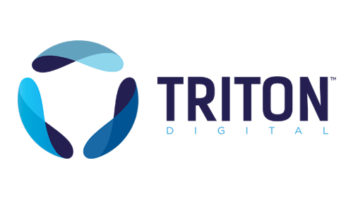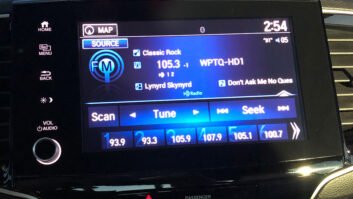The author is director of engineering, IT and facilities for CKUA Radio Network.
EDMONTON, Alberta — Today’s world is about instant availability of information. What began as novelty became an expected feature. I’m referring to “Now Playing” information. What started as artist and title display has evolved into multiple streams of information on a variety of devices and outlets including the Web.

Imagine if you could provide promotional messages, weather, sports updates and contest information, all mixed in and delivered to these multiple devices.
Range of products
At CKUA, there are no computer-generated playlists. Our DJs play what they want, when they want from the source they want. This represents a challenge and required a customized solution.
CKUA has an estimated music library exceeding 1.4 million song selections in various playback formats, from automation systems in Edmonton, Calgary to CDs, albums, laptops, tape, live events and produced shows provided to us by outside contractors.
With 16 transmitters spanning the province, we also needed to provide metadata content to each RDS encoder.
The folks at Arctic Palm had a range of software products in their Center Stage Live data capture and delivery software package. For any of our requirements it didn’t already meet, Arctic Palm customized answers.
Three core programs form the basic architecture.
CSRDS captures information from multiple sources, formats the information and sends the data to any combination of RDS encoders, websites and streaming players. It is automatically LAN-copied for use in other applications’ updating audit tools and the “Now Playing” database.
CSLogIt is used to manually enter music information (from CD and other sources) that is sent to CSRDS on command.
CSRAS too is used to send “Now Playing” information to CSRDS but differs from CSLogIt in that it reads a predefined log and sends the information based on log times — in effect acting as its own radio automation system simulator.
For shows produced by independent contractors, a remote playlist editor was incorporated providing all metadata information when played through the automation systems. This gives the contractor the ability to create a metadata or “log” that matches the audio file for the day-part they are programming.
When ready to submit, a simple mouse click attaches the audio file associated with the playlist metadata which sends it to CKUA via an FTP transfer. At CKUA, software monitors the FTP site and downloads the playlist and audio file from the FTP site. The process will verify the download and, if authorized, the audio file will be placed in the automation system import folder and the playlist will be placed in the CSRAS log file folder.
At the scheduled date and time, CSRAS will send the metadata from the downloaded playlist as per scheduled events.
We also use the CSWeather module, which automatically captures regional weather forecasts from Environment Canada for RDS display when no metadata is available. Yet another module CSScheduler allows us to schedule promotional material by station, date, day of week and time of day or it can trigger messages based on what’s playing.
This has been a learning experience and would not have been possible without the dedication of Stu Buck at Arctic Palm. No matter the challenge he had a solution at hand.
For information, contact Stu Buck in Ontario at (519) 452-0002 or visit www.arcticpalm.com.
Radio World publishes User Reports on products in various equipment classes throughout the year to help potential buyers understand why a colleague made a given equipment choice. These are unpaid testimonials by users who have already purchased the gear. A Radio World Product Evaluation, by contrast, is a freelance article by a paid reviewer who typically receives a demo loaner.












